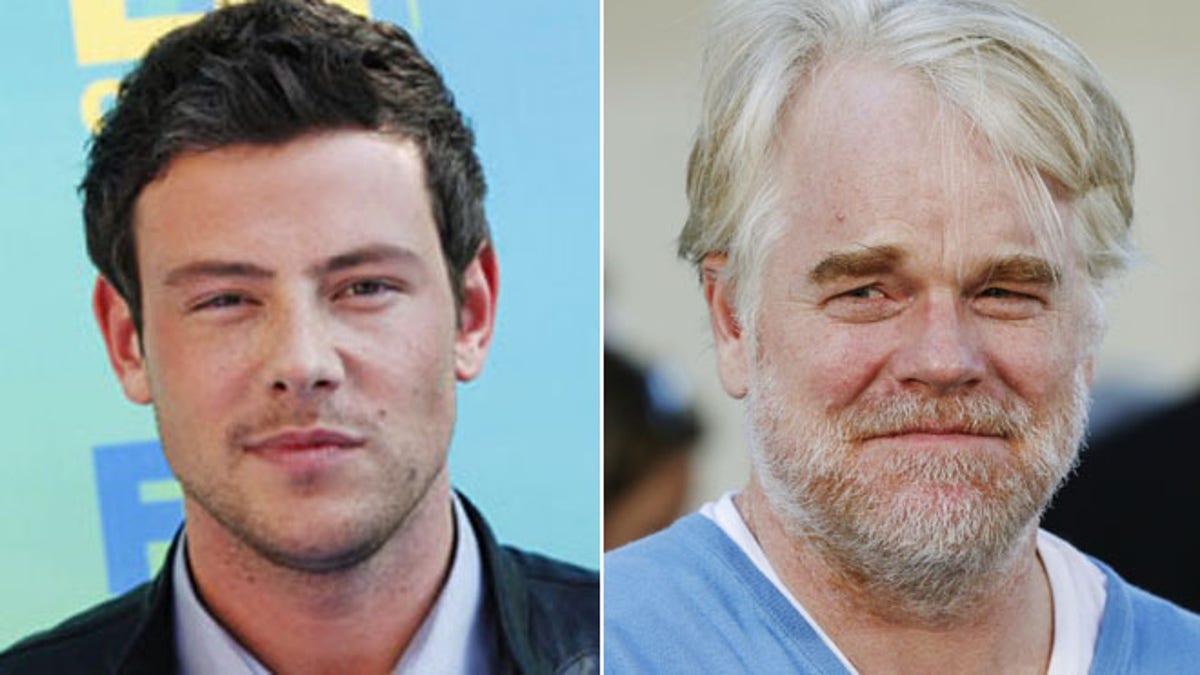
LOS ANGELES – The entertainment industry has been rocked by the sudden death of 46-year-old Oscar winner Philip Seymour Hoffman, who is believed to have overdosed on heroin in his Manhattan apartment on Sunday.
In July 2013, heroin claimed the life of “Glee” star Cory Monteith when he OD'd at age 32 in a Vancouver hotel room.
While both deaths came as a shock to many, one addiction expert tells FOX411 that the only thing that shocks him is that more celebrities haven't met the same fate.
“What is surprising is not that guys like Cory Monteith and Philip Seymour Hoffman are dying, but that more celebrities shooting heroin aren’t dying,” Richard Taite, CEO of the rehab facility Cliffside Malibu, told FOX411. “That is the surprising part.”
Indeed, according to recent statistics, heroin is coming back big time.
The Drug Enforcement Agency (DEA) reports that over 660,000 Americans used heroin in 2012, nearly double the number from five years earlier, and that users these days tend to be more wealthy than before.
So why the uptick and change in demographic? One big reason is that prescription painkillers are harder to obtain illegally, and harder to use once you get them.
“There are more constraints on prescription painkillers, so addicts will turn to heroin instead," explained addiction specialist Dr. Damon Raskin. "Pharmaceutical companies made drugs like Oxycontin more tamper-proof and more difficult to crush or snort. Also, doctors are catching on to patients who shop for painkillers with databases that can clue them into who the addicts are.”
Sources told us that heroin – known in showbiz circles as 'brother,' 'Harry Jones' or 'schmack' – is very easy to get in Hollywood, often easier than cocaine and prescription painkillers. While it does vary in price, it can be as cheap as $10 a bag, which one source says is “enough for a good fix.” Socially, however, it’s still taboo, and not the sort of drug you’d see being openly used at Hollywood parties or clubs.
Dr. Gail Saltz, associate professor of psychiatry at The New York Presbyterian Hospital, said the new generation of heroin users "don’t know of the dangers and high incidence of overdose and death. People can function while addicted to heroin, hence it is quite possible to hide your addiction. But make no mistake, heroin destroys lives and kills. Even being ‘clean’ for decades does not mean you cannot relapse.”
Hoffman himself had reportedly been sober from the drug for 23 years, before suffering a relapse last year for which he underwent a 10-day detox program.
But Raskin said 10 days is rarely enough, and that once one is addicted to heroin, it is very hard to get clean.
“I have seen terrible cases where addicts will go to extreme cases to get their heroin fix," he said. "Like injecting the drug in their neck or penis because they have used up all access to the easy veins in their arms and legs.”
Follow @holliesmckay on Twitter.














































